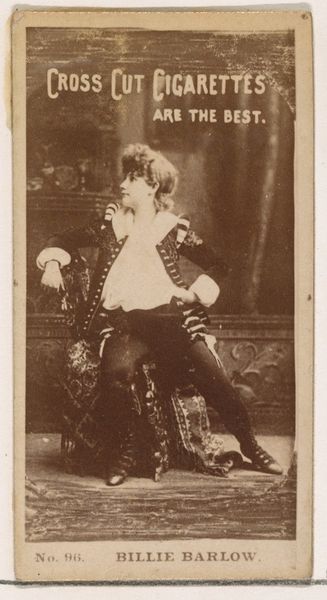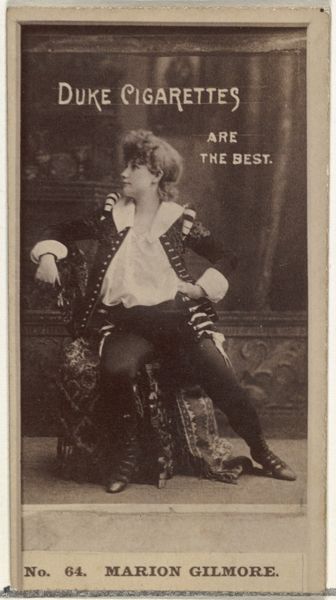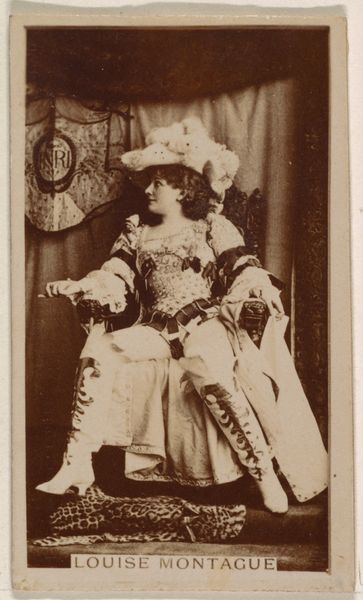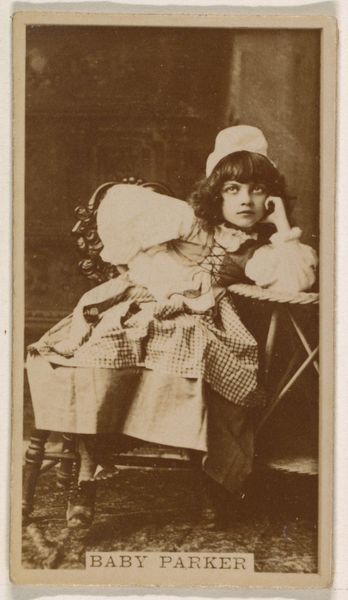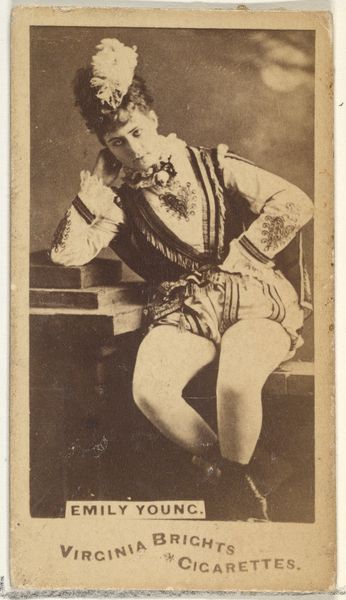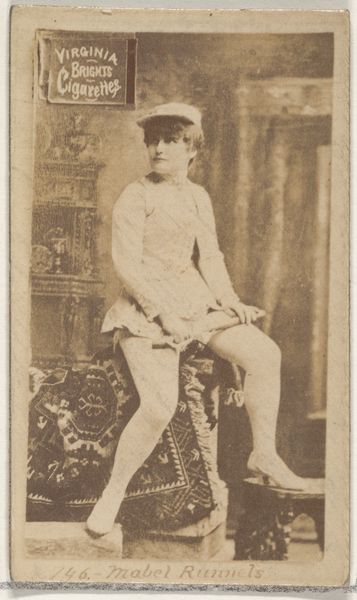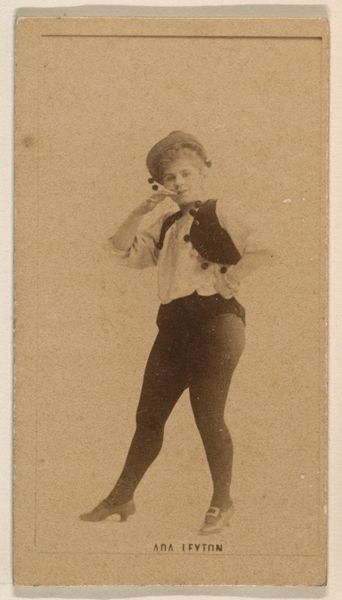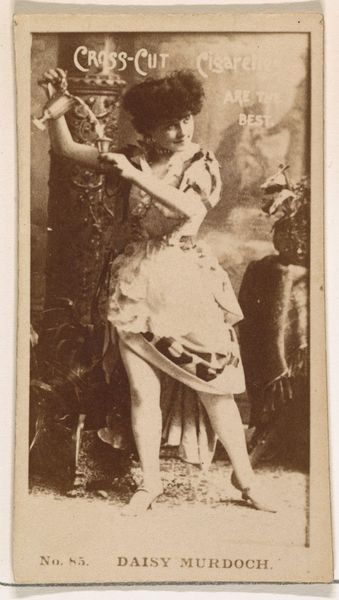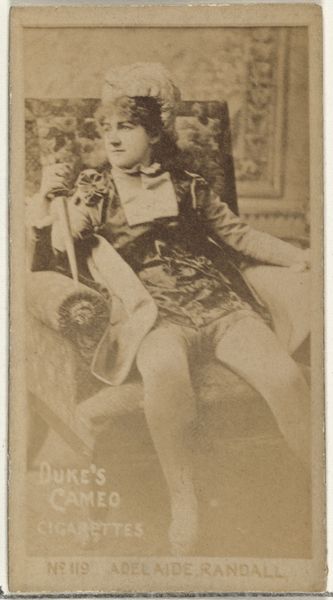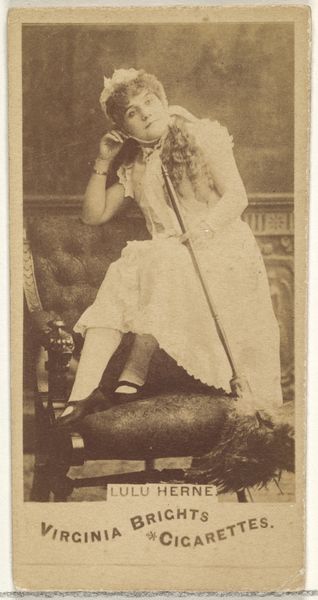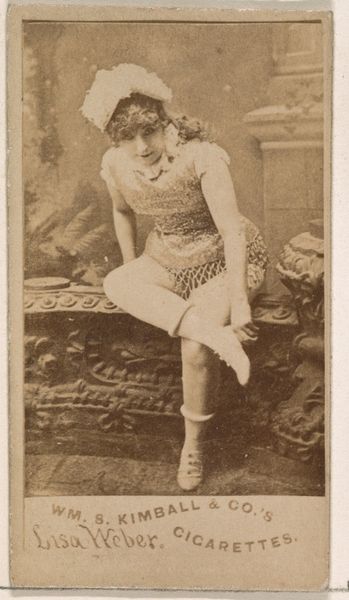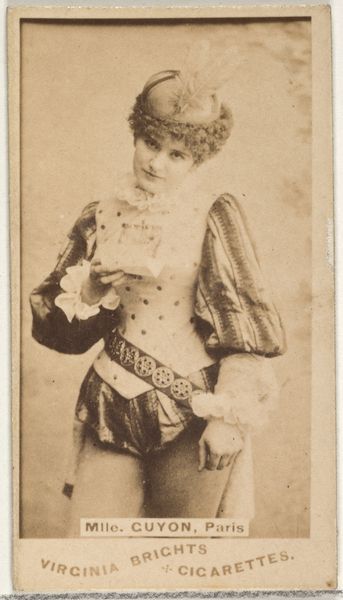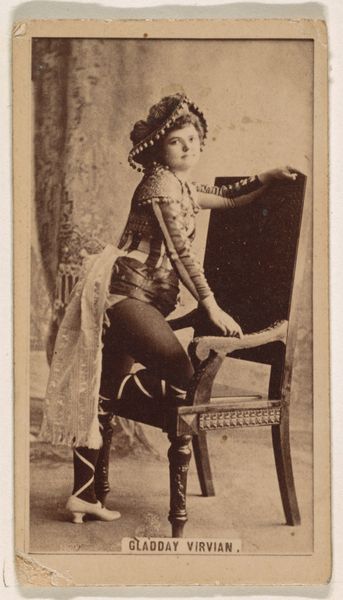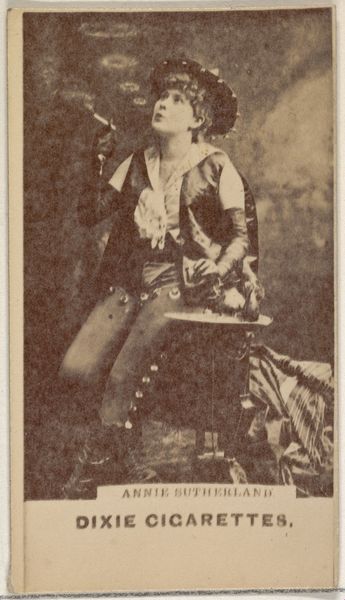
Card Number 55, Billie Barlow, from the Actors and Actresses series (N145-4) issued by Duke Sons & Co. to promote Cameo Cigarettes 1880s
0:00
0:00
drawing, print, photography
#
portrait
#
drawing
# print
#
photography
#
19th century
Dimensions: Sheet: 2 11/16 × 1 3/8 in. (6.8 × 3.5 cm)
Copyright: Public Domain
Curator: This is a trade card, “Card Number 55, Billie Barlow,” issued by Duke Sons & Co. in the 1880s to promote their Cameo Cigarettes. These cards, featuring actors and actresses, were inserted into cigarette packs as a marketing tactic. Editor: My first thought is how effectively it uses the iconography of stardom to sell a product. Billie Barlow strikes quite the pose— confident, and almost daring you to disagree with her. Curator: Absolutely, the pose is carefully constructed. Consider the implications: tobacco companies helped popularize photography and image distribution through consumerism, building stars' recognition through the circulation of these cards. What seems innocuous reflects a more profound interplay between consumer culture and image creation. Editor: That intersection is crucial, isn’t it? This seemingly innocent card implicates anxieties of the era, especially concerning women in the public eye. There is almost a sense of androgyny. Is she challenging those social expectations by embracing masculine attire? Curator: The performance of gender here is fascinating, particularly regarding who gets to consume cigarettes, or is *allowed* to be seen consuming them. The commercial image of a "new woman," becoming popularized, suggests changing dynamics, yet is inevitably confined to the framework of commercialization. Editor: True, and we shouldn’t forget the exploitative dimensions of these cards and products—the impact on labor, public health, the exoticization of smoking… How do you feel the actress Billie Barlow may have navigated all of these layered implications within the historical context of the card's production? Curator: The layering creates a complex commentary; she may not even know, or want to know. I tend to examine it by how Barlow's identity got absorbed by tobacco conglomerates that were capitalizing on emergent entertainment and advertisement forms of media. I'd rather see Barlow claim this as her own, reappropriating the means, or demanding economic liberty through her work in theater. But alas, capitalism, the cigarette corporations, and the "new woman" get folded together as historical fate. Editor: Perhaps, ultimately, that's the uneasy feeling that endures after viewing this seemingly simple trade card. The confluence of artistic labor, personal freedoms, and economic power relations are packaged neatly inside the commercial product itself. Curator: Precisely. By situating this promotional card within the evolving terrain of celebrity culture and tobacco consumption, we confront an artwork that has political resonances extending to this day.
Comments
No comments
Be the first to comment and join the conversation on the ultimate creative platform.
